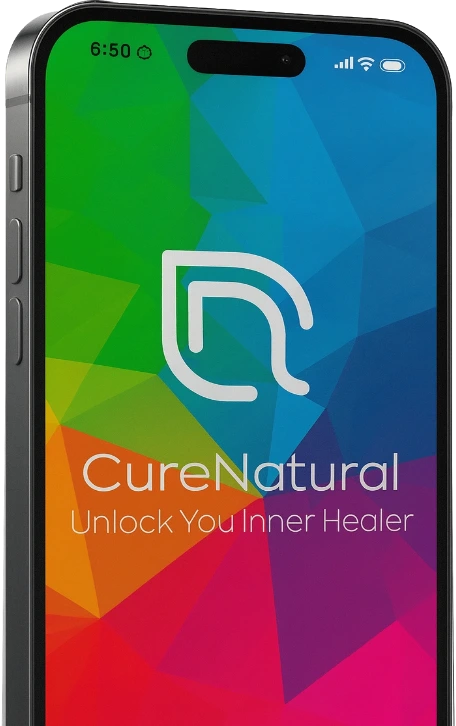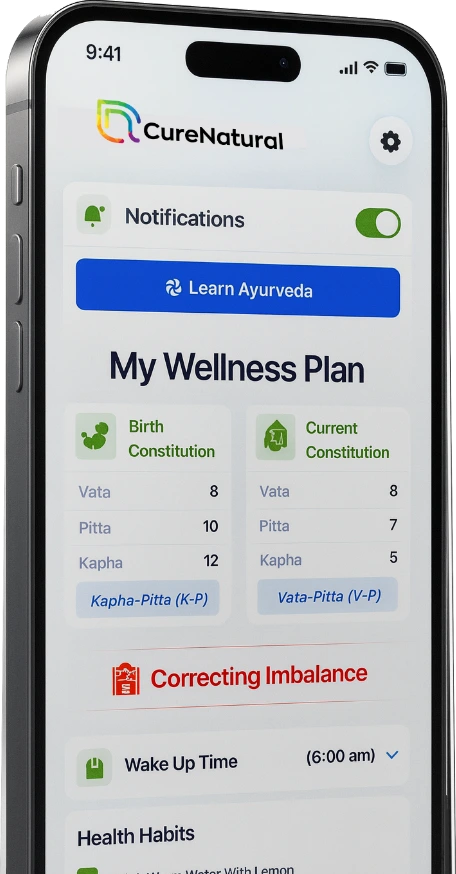Are you looking for a healthcare approach that treats you as a whole person, not just your symptoms? You’re not alone. Many people are seeking a more comprehensive form of healthcare. This approach considers the intricate balance between body, mind, and soul.
A holistic doctor looks beyond just your physical health. They aim to understand and treat the underlying causes of your condition. With so many options available, choosing the right integrative health practitioner can be overwhelming.
In this article, we’ll guide you through the top 10 criteria to consider. These criteria will help you select a healthcare provider who aligns with your needs and preferences.
Key Takeaways
- Understand the importance of a holistic approach to healthcare
- Learn the key criteria for choosing the right healthcare provider
- Discover how to evaluate a practitioner’s approach to integrative health
- Find out what questions to ask during your initial consultation
- Gain insights into the benefits of a collaborative patient-practitioner relationship
Understanding the World of Holistic Medicine
Holistic medicine is a wide range of healing practices. It’s becoming more popular for its focus on the whole person. This includes the body, mind, and spirit, aiming for the best wellness.
What is Holistic Medicine?
Holistic medicine treats the whole person, not just symptoms. It mixes traditional medicine with alternative therapies. People search for holistic healing near me to find these services.
By combining Western medicine with alternative therapies, holistic practitioners offer a tailored healthcare approach.
Types of Holistic Medicine Practitioners
There are many types of holistic medicine practitioners. Each has their own specialty and way of working. Some common ones include:
- Naturopathic doctors who use natural remedies and lifestyle changes.
- Acupuncturists who balance the body’s energy with traditional Chinese medicine.
- Ayurvedic practitioners who tailor treatments to an individual’s unique needs.
To find an ayurvedic practitioner or another holistic practitioner, you need to know about their training and philosophy.
The Growing Popularity of Integrative Health Approaches
The popularity of integrative wellness is growing. More people want healthcare that focuses on their overall well-being. This is because they want care that’s more personalized and preventive.
Integrative health is being used alongside traditional medicine. This mix of conventional and alternative therapies is changing healthcare.
The Importance of Medical Knowledge and Credentials
Choosing a trustworthy holistic medicine practitioner starts with their medical knowledge and credentials. When looking for naturopath dr near me or a holistic health clinic, knowing the background of the practitioners is key.
Holistic medicine practitioners have different educational backgrounds. Some have conventional medical degrees like MDs or DOs. Others have degrees in alternative or complementary medicine, such as naturopathy or acupuncture. It’s crucial to understand the differences between these educational paths and how they impact the care you receive.
Conventional Medical Degrees vs. Alternative Medicine Training
Conventional medical degrees come from accredited medical schools. They involve rigorous training in Western medicine. Practitioners with these degrees know a lot about human anatomy, physiology, and pharmacology.
On the other hand, alternative medicine training programs focus on holistic approaches. They include natural therapies and preventive care.
“The art of medicine is long, complex, and difficult. It demands from the practitioner a continuous and tireless effort to keep abreast of the advances in science and to apply them in practice.” –
Red Flags to Watch For
When checking a holistic medicine practitioner’s credentials, watch out for these red flags:
- Lack of licensure or certification
- No clear disclosure of their educational background
- Overly aggressive or dismissive communication style
- Unwillingness to collaborate with other healthcare providers
Finding Balance Between Traditional and Alternative Approaches
The best integrative health solutions come from practitioners who balance traditional and alternative approaches. When searching for a holistic medicine practitioner, look for individuals who:
- Have a strong foundation in conventional medicine
- Are open to incorporating evidence-based alternative therapies
- Prioritize patient education and empowerment
By finding a practitioner who balances these elements, you can get comprehensive, patient-centered care. This care addresses your overall well-being.
Why U.S.-Based Education Matters When Choosing a Practitioner
The foundation of a practitioner’s ability to provide quality care lies in their educational background. It’s essential to understand the significance of U.S.-based education. When searching for an integrative medicine doctor near me or a holistic practitioner, their educational credentials are key.
Standards and Regulations in American Medical Education
American medical education is known for its high standards and strict regulations. Integrative medical doctors go through four years of conventional medical school. Then, they spend three to seven years in residency.
This training makes sure they know both conventional and alternative healthcare approaches. When looking for a holistic dr near me, knowing these standards helps you judge their qualifications.
International vs. Domestic Training: Pros and Cons
International training can offer valuable experience and insights. Yet, there are pros and cons to consider. Some international programs might offer unique training not found in the U.S.
But, domestic training aligns better with U.S. healthcare standards. For parents, an integrative pediatric specialist with U.S.-based training is often better. They’re familiar with local healthcare systems and standards.
Verifying Educational Credentials
Verifying a practitioner’s educational credentials is crucial when choosing a holistic medicine practitioner. You should check their medical degree, residency information, and any integrative or holistic medicine training. This can usually be done through professional directories or the practitioner’s website.
For those searching for an integrative medicine doctor near me, this step ensures you’re getting care from a qualified professional.
Essential Certifications for a Qualified Holistic Medicine Practitioner
Certifications are key to knowing if your holistic medicine practitioner is up to the task. It’s important to check beyond their degree. Look for certifications that show their skill in holistic healing.
Board Certifications in Integrative Medicine
One important certification is a board certification in integrative medicine. For example, doctors can get a fellowship in integrative medicine. This involves over 1,000 hours of study.
This training helps them mix traditional Western medicine with proven complementary therapies.
Examples of prestigious certifications include:
- Fellowship in Integrative Medicine
- Certified Integrative Health Coach (CIHC)
- Diplomate in Integrative Medicine (DIM)
Specialty-Specific Credentials
Specialty-specific credentials also show a practitioner’s expertise. For instance, a practitioner in integrative psychiatry might have extra training. This training helps them use holistic methods for mental health.
| Specialty | Relevant Certification | Description |
|---|---|---|
| Integrative Psychiatry | Certified in Integrative Mental Health (CIMH) | Focuses on holistic approaches to mental health care |
| Holistic Nutrition | Certified Nutrition Specialist (CNS) | Expertise in nutritional science and holistic nutrition practices |
Continuing Education Requirements
Continuing education is vital in holistic medicine. A good practitioner keeps learning to offer the best care. Look for those who take part in ongoing education and workshops.
By knowing these certifications, you can find a skilled holistic medicine practitioner. They will give you the care you need in a comprehensive way.
Evaluating a Practitioner’s Understanding of Holistic Principles
Finding the right holistic practitioner is key. They treat you as a whole, looking at your lifestyle, diet, and stress. This is the core of integrative wellness.
Assessing Their Philosophy of Healing
A practitioner’s healing philosophy shows their grasp of holistic principles. Listen to how they talk about health and wellness during your first meeting. Do they aim to fix symptoms or find the root cause? An ayurvedic practitioner, for instance, might stress the need for body and mind balance.
Questions to Ask During a Consultation
Asking the right questions can give you insight into their approach. Think about asking:
- How do you tailor your treatment plans to individual patients?
- What role do nutrition and lifestyle play in your practice?
- How do you integrate conventional and alternative therapies?
These questions can show their dedication to holistic health clinic principles.
Reviewing Their Published Materials and Resources
Look at a practitioner’s published works, like blog posts, videos, or books. They can reveal their philosophy and skills. Check these to see if they understand holistic principles well and can explain them clearly.
By carefully checking a practitioner’s grasp of holistic principles, you can choose wisely for your health.
The Value of Knowledge Sharing and Teaching Approach
Teaching patients is key for a holistic medicine practitioner. They should treat and teach patients to keep their health up. This is crucial in integrative health solutions, where patients are active in their care.
One-on-One Coaching vs. Group Sessions
Teaching methods differ among practitioners. Some offer one-on-one coaching for personal advice. Others have group sessions for community support. The best choice often mixes both.
Think about your learning style when choosing a practitioner. For integrative pediatric care, family health advice is important.
Availability of Online Resources and Support
Online resources are vital in today’s world. They include webinars, guides, and forums for support. A good practitioner offers these to help patients learn more.
Look for online support tools like video tutorials. These help deepen your understanding of holistic health.
Their Communication Style and Accessibility
A practitioner’s communication style matters a lot. They should be easy to talk to, listen well, and answer questions fully. Being available is also important.
When looking for a holistic dr near me, notice how they communicate. Their clear explanations show their teaching skills and if they’re right for you.
How to Research Client Testimonials and Success Stories
To make a smart choice about your health, it’s key to know how to look at client testimonials and success stories. Feedback from clients can give you a good idea of the quality of care and how well treatments work.
Finding Legitimate Reviews
Finding real reviews is crucial when looking at client testimonials. Here are some tips to help you:
- Check multiple sources: Look for reviews on various platforms, including the practitioner’s website, social media, and independent review sites.
- Be wary of overly positive or negative reviews: Reviews that are extremely positive or negative may be biased or fake.
- Look for specific details: Genuine reviews often include specific details about the practitioner’s approach, bedside manner, and the outcomes of treatments.
What to Look For in Patient Feedback
When looking at patient feedback, there are important things to consider. These include:
- The practitioner’s ability to listen and understand patient concerns
- The effectiveness of the treatments and therapies offered
- The practitioner’s communication style and bedside manner
- The overall satisfaction of patients with the care they received
By focusing on these aspects, you can get a full picture of a practitioner’s strengths and weaknesses.
Red Flags in Testimonials
While testimonials can be very helpful, there are red flags to watch out for. These include:
- Overly promotional language: Be cautious of reviews that seem more like sales pitches than genuine feedback.
- Lack of specificity: Reviews that are vague or lack specific examples may not be trustworthy.
- Unusual or inconsistent patterns: If multiple reviews seem suspiciously similar or follow an unusual pattern, it may indicate fake reviews.
By knowing these red flags, you can make a better choice when picking a holistic health clinic or integrative health practitioner.
Assessing Professional Experience and Practice History
When looking for a holistic medicine practitioner, it’s key to check their background. Their experience and history can greatly affect the care they give.
Years in Practice vs. Quality of Experience
Years of practice matter, but so does the quality of that experience. A practitioner with a wide range of experience can offer deeper insights.
Key factors to consider:
- The range of conditions they have treated
- Their success rate in treating those conditions
- Any notable cases or breakthroughs they’ve achieved
For example, a naturopath dr near me with experience in chronic illnesses can offer better care than one with less experience.
Specializations and Areas of Focus
Holistic medicine practitioners often focus on certain areas, like integrative oncology or natural fertility treatments. Knowing their focus can help you see if they’re right for you.
Some common specializations include:
- Integrative medicine
- Naturopathic oncology
- Holistic nutrition
An integrative medicine doctor near me who specializes in chronic pain can provide more focused care.
Professional Affiliations and Partnerships
A practitioner’s affiliations and partnerships show their commitment to staying current. Look for affiliations with well-respected holistic medicine organizations.
| Affiliation | Description |
|---|---|
| American Holistic Medical Association | A professional organization for holistic medical practitioners |
| Integrative Healthcare Policy Consortium | An organization focused on promoting integrative healthcare policies |
By looking at a practitioner’s experience and history, you can make a better choice. Whether you’re searching for a holistic dr near me or a specialized practitioner, these factors are crucial.
Finding a Holistic Medicine Practitioner Who Truly Lives Their Philosophy
Looking for a holistic medicine practitioner means finding someone who cares deeply and practices what they preach. Their authenticity greatly affects your path to wellness.
The Importance of Practitioners “Walking Their Talk”
A true holistic practitioner shows compassion, wisdom, and self-care. They grow into compassionate and wise beings, taking care of themselves and their practice.
Embodiment of teachings is not just about what they teach. It’s about living the healing principles they preach.
Signs That a Practitioner Embodies Their Teachings
So, how do you find a practitioner who truly lives their philosophy? Look for these signs:
- A balanced and healthy lifestyle
- Evidence of personal growth and self-awareness
- A compassionate and non-judgmental approach to patients
- Continuous learning and professional development
Questions to Ask About Their Personal Health Practices
To understand a practitioner’s commitment, ask these questions:
- How do you maintain your own physical and mental well-being?
- Can you share examples of how you’ve applied holistic principles in your own life?
- How do you handle stress and challenges in your personal life?
By asking these questions and looking for signs, you can find an integrative wellness practitioner. They will teach and live holistic living, making your healing journey more authentic and effective.
Finding the right ayurvedic practitioner or holistic healer is more than their credentials. It’s about their ability to inspire and guide you through their own example.
Conclusion: Making Your Final Decision
Choosing the right holistic medicine practitioner is key to achieving optimal health and wellness. By looking at the top 10 criteria from this article, you can make a choice that fits your needs and preferences.
When searching for a holistic medicine practitioner, look for someone who lives what they teach. A good holistic health clinic will have practitioners who are knowledgeable and dedicated to their own health.
Think about credentials, experience, and the practitioner’s healing philosophy when making your decision. This way, you’ll find a trusted partner for your health journey. They will help you live a more balanced and fulfilling life.






